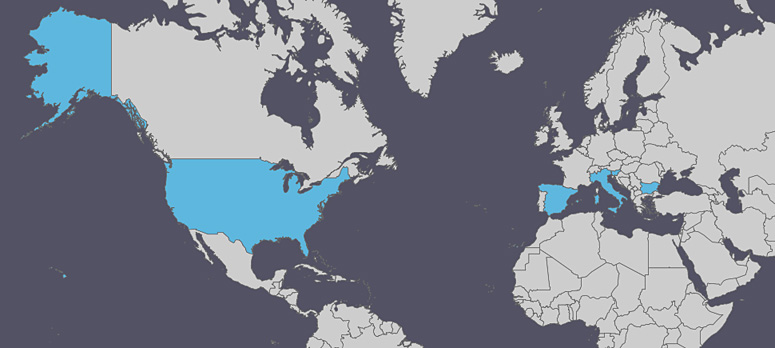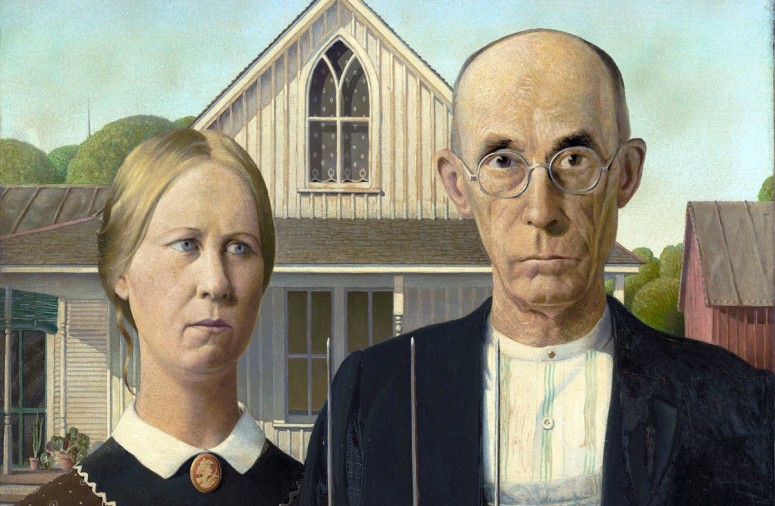
Courtesy Shutterstock
Wanna change the world? Here are 40 mostly easy things you can do everyday to make a difference while serving those around you:
- Smile and say hi to everyone
- Help your family by doing one of their chores
- Send an encouraging note
- Deliver treats to someone in need
- Look for someone alone and genuinely ask how they are doing
- Invite friends or family to dinner and ask how they’re doing
- Always hold the door open for strangers
- Give one sincere compliment each day
- Pay for the person behind you in a fast food line or a restaurant
- Text a family member to say I love you Continue reading…

AM Charts
I did some light reading on time-use recently and came across some insightful observations from researcher John Robinson. He’s spent the last four decades reviewing thousands of “time journals” from people around the world.
Contrary to what you might think, Robinson argues we have more free time today than when he started keeping records in the ’60s, something The Atlantic corroborates. Only now we choose to fill that free time with overwork or busy-ness instead of proper leisure (e.g. relaxation, hobbies, or adventures) because that’s how many of us validate our existence.
A few highlights from Robinson’s research: People in Spain spend the most time walking (good for them!), Italians and Slovenians spend the most time relaxing (nice!), and Bulgarians (not Americans!) spend the most time watching TV (tsk, tsk). In the United States, people spend more time on computers than any other country, they volunteer more, and they spend the most time taking care of children and the elderly.
I suspect the increase in childcare is partially due to the rise of helicopter parenting. But those are mostly noble uses of American’s time, I believe. That is, of course, if we’re using computers to work smarter, work less, and facilitate really cool offline adventures.—Blake Snow
The story first published to blakesnow.com in 2014
I don’t always study philosophy, but when I do, I make it count.
Case in point: A friend and I were recently discussing the human condition over email. Exhilarating stuff, I know. I’ll skip to the best part.
Basically, we decided that humans struggle to internalize both complex and simple realizations. Complex ones because they’re harder to grasp, and simple takeaways because we’re usually too distracted by temptations, desires, and pleasures to see them through, even if we believe in them (or so argues Aristotle; more on him later).
At this point, I asked my buddy, “So if humans struggle to comprehend both complex and simple ideas, what in the HELL are we good at?”
His reply, “Entertainment. And nothing else.” Full stop. The gravity and strategic double periods of his remark made me do this:

MGM Studios
At which point I enrolled in a 36-course undergraduate class from Smith College. Not exactly. But I did download the audible version of the class, The Meaning of Life: Perspectives from the World’s Greatest Thinkers, from Amazon!
Having already graduated (go, fight, win!), I did this solely for my own enlightenment. Little did I know how much impact professor Jay Garfield’s masterful curriculum would have on my worldview, existential outlook, and shared beliefs with others.
Here’s what I learned: Continue reading…

Shutterstock
As seen on Long Reads, Digg, and my own web browsing:
- Is more democracy always better democracy? Yes, argues The New Yorker, especially since party primaries determine the leading candidates.
- What happens when notoriety kills something? Here’s your answer in a terrific story titled I found the best burger in the country, then I killed it.
- Missing the story. Rebuilding public trust starts by including more voices in the media and diversifying (or at least offering empathy training) to mostly white newsrooms, argues The Columbia Journalism Review.
- Believing without evidence is always morally wrong. Or so convincingly argues Aeon.
- Inside the booming business of background music. Why retailers and sports teams are spending big money on music design, according to The Guardian.
- Why saving the world is crazy hard. According to a hard-to-read personal account of third-world atrocities by The Walrus.
- How $3000 elite teams are killing youth sports in America. Expensive travel leagues siphon off talented young athletes and leave everyone else behind, reports The Atlantic. (Which is partly why my wife is starting a non-profit competitive league next year—go Lindsey!)

Grant Wood/Wikimedia Commons
As a leading psychologist, Shawn Achor has spent two decades studying happiness. His bona fides include award-winning researcher and teacher at Harvard, best-selling author on positivity, and popular TED lecturer.
So when he speaks you should listen. For instance, Achor asserts our circumstances — including age, race, gender, social status, and wealth — only account for 10% of our happiness. The rest is determined by our genetic baseline for happiness (i.e. optimist vs pessimist) and our individual intentions, including the way we spend our time and the things we ponder.
Obviously, happiness means different things to different people. But there are plenty of standardized things we can do to boost our chances of finding it. Somethings such as knowing oneself, learning how to forgive, and balancing the personal, professional, and social demands on our time can be life-long pursuits.
But other happiness-building attributes are quite easy, Achor argues. In order from least difficult to most difficult, they are as follows: Continue reading…

credit: lindsey snow
Thanks to my wife, I’ve grown to appreciate winter instead of loathing it. Still, the persistent cold, dormant life, and extended darkness can take its toll on our mood, especially near the tail end of the season.
That said, here are four things everyone can do to beat the winter blues, according to USA Today:
- Volunteer, it will warm your heart. To get inspired, visit United Way.
- Eat healthy, from scratch foods; mostly plants, no seconds, but don’t vilify entire food groups (including sugar). The right nutrition can improve your mood.
- Schedule leisure. Lunch with friends, night out with a loved one, or your next vacation. Anticipating events does wonders for your mood. Planning yearly vacations in late January (after the tax man takes his cut) has served my family well.
- Get moving. Exercise is a dead horse. But I’ll kick it again, because it works. Don’t know where to start? Try a 20 minute outdoor walk everyday or the scientifically proven 7 minute workout.
See you in spring.






